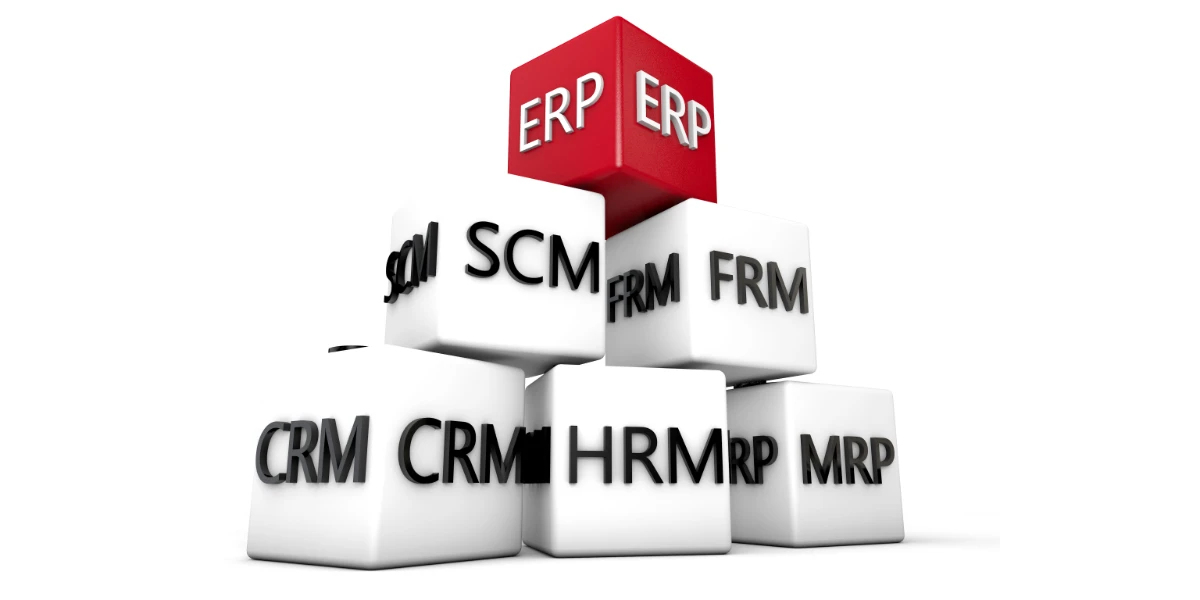NetSuite is a powerful cloud-based Enterprise Resource Planning (ERP) software that helps businesses manage their finances, operations, customer relations, and more in a unified platform.
NetSuite, owned by Oracle, is a comprehensive business management software that provides various functionalities to help businesses streamline their processes and make informed decisions. It offers modules for financial management, customer relationship management (CRM), e-commerce, and inventory management. With NetSuite, companies can manage their operations more efficiently and gain a competitive edge.
The features of NetSuite set it apart from the rest of the ERP services, so let’s explore the features and more information about NetSuite in this blog.

Key Features of NetSuite
- Financial Management
Financial Management is a critical aspect of any business, and NetSuite excels in this domain. Within its financial module, NetSuite offers a comprehensive set of tools that encompass various crucial functions. These include robust accounting capabilities, enabling businesses to efficiently manage financial transactions, ledger entries, and financial records.
Additionally, the module encompasses financial reporting, allowing organizations to generate detailed financial statements, balance sheets, and income statements. These reports are not just static documents; they are dynamic and can be customized to provide insights into specific financial metrics.
NetSuite’s financial module includes tools for accounting, financial reporting, billing, and revenue recognition. It allows businesses to handle complex accounting requirements and gain real-time insights into their financial performance.
- Customer Relationship Management (CRM):
NetSuite provides users with a robust suite of tools aimed at supporting business growth. Moreover, its mobile version ensures convenient accessibility from any device, giving NetSuite a competitive advantage.
NetSuite can streamline administrative tasks through automation, streamline workflows, and centralize client interactions, ultimately reducing the workload.
NetSuite’s CRM module enables businesses to manage their customer interactions, sales, and marketing activities. It helps in building and maintaining strong customer relationships.
- E-Commerce
NetSuite’s E-commerce capabilities offer an integrated solution for businesses seeking to establish and operate online storefronts with efficiency and precision. The platform provides an array of tools for website creation, customization, and management, ensuring seamless integration with inventory management systems.
Real-time inventory monitoring and order processing streamline the customer experience, reducing potential disruptions caused by stockouts or delays. Furthermore, NetSuite enables businesses to optimize their e-commerce operations by automating various aspects of order fulfillment, from order capture to shipment tracking. enhances the customer’s online shopping experience by ensuring accurate and timely deliveries but also empowers businesses to operate their online stores with greater agility and precision, ultimately driving improved customer satisfaction and business growth.
- Inventory Management
NetSuite’s Inventory Management module stands as a technologically advanced solution that empowers businesses with granular control and real-time visibility into their inventory processes.
Businesses can maximize their supply chain operations by using NetSuite’s cutting-edge technologies, which make it easier to maintain and monitor stock levels. The platform’s inventory management capabilities extend beyond mere stock tracking, incorporating sophisticated features such as demand forecasting, automated replenishment, and order optimization.
NetSuite’s inventory management tools operate on a cloud-based infrastructure, enabling real-time updates and accessibility from various devices. Additionally, the system employs advanced algorithms and automation to enhance accuracy in inventory valuation, reducing the likelihood of errors in financial reporting.
NetSuite businesses can achieve not only operational efficiency but also strategic advantages in inventory planning and order fulfillment, contributing to a seamless and streamlined supply chain process.
- Human Resources (HR)
NetSuite’s Human Resources (HR) module represents a multifaceted solution tailored to address the intricate needs of managing a workforce effectively. At its core, this module serves as a centralized hub for employee information, housing a comprehensive repository that includes personal details, work history, and performance metrics. This centralized database streamlines HR processes, enabling efficient record-keeping and providing HR professionals with a holistic view of the workforce.
In addition to its role in managing employee information, NetSuite’s HR module extends its functionality to encompass payroll processing. The payroll features within this module are designed to automate and streamline the often complex and time-consuming task of payroll management. From calculating wages and taxes to handling deductions, NetSuite ensures accuracy and compliance with regulatory standards.
- Customization:
NetSuite’s emphasis on customization underscores its commitment to meeting the unique needs of each business. In addition to the platform’s adaptability, businesses can precisely customize NetSuite to match their own needs and procedures. This customization extends to the addition of custom fields, providing businesses with the ability to capture and analyze data points that are particularly relevant to their operations.
NetSuite’s versatility guarantees that applications can handle the complexities of many industries and company models, whether it is changing pre-existing forms or developing brand-new ones.
What are the steps involved in implementing NetSuite?
1) Setting Up and Configuration
- Choose the Right Plan – Start by selecting the NetSuite plan that best fits your business requirements. Different plans offer varying features and pricing.
- User Setup- Define user roles and permissions, so you can control who can access and edit data in NetSuite.
- Customization- Configure NetSuite to match your business processes. This might involve creating custom fields, forms, and workflows.
2) Data Migration
- Importing Data: To get started, you need to move your existing data into NetSuite. This could include customer records, inventory data, and financial transactions.
3) Training and Support
- Training- Invest in training for your team members. Ensuring they’re proficient in using NetSuite is vital. Oracle offers training resources, and you can find additional training from partners.
- Support –Make use of available support resources. This includes customer support and the NetSuite community, where you can find answers to your questions.
4) Reporting and Analytics
- Regularly generate reports and analyze data. This will help you make informed decisions and monitor your business’s performance.
5) Updates and Maintenance
- Stay informed about NetSuite’s latest features and security updates. Regularly back up your data and ensure your system remains secure.
How Much Does NetSuite Cost You?
NetSuite Pricing Unveiled
Businesses choose NetSuite by subscribing to an annual plan that includes three crucial components: the primary platform, add-on modules, and user count. This contrasts with the significant upfront payment required for a perpetual license to use on-premises systems, coupled with ongoing expenses for maintenance and support.
The core NetSuite platform comes equipped with features like accounting, inventory management, order management, and tax management. NetSuite employs a modular pricing structure, ensuring that customers only pay for the specific modules they require at any given time. The flexibility of this design is evident as businesses can easily activate new modules and increase user capacity as they expand—a distinct advantage of cloud software.
Therefore, NetSuite is the greatest option for a business seeking cost-optimization objectives together with improved functionality.
NetSuite is a flexible ERP system that has the power to completely change the way your company runs. It offers a complete solution to improve productivity and streamline your operations due to its wide range of features, customization choices, and cloud-based accessibility.
The methods in this blog post will lead you through the process of successfully implementing and using NetSuite to improve your business operations and stimulate growth. Incorporating NetSuite in your arsenal of software can be beneficial for businesses of all sizes, small or large.







